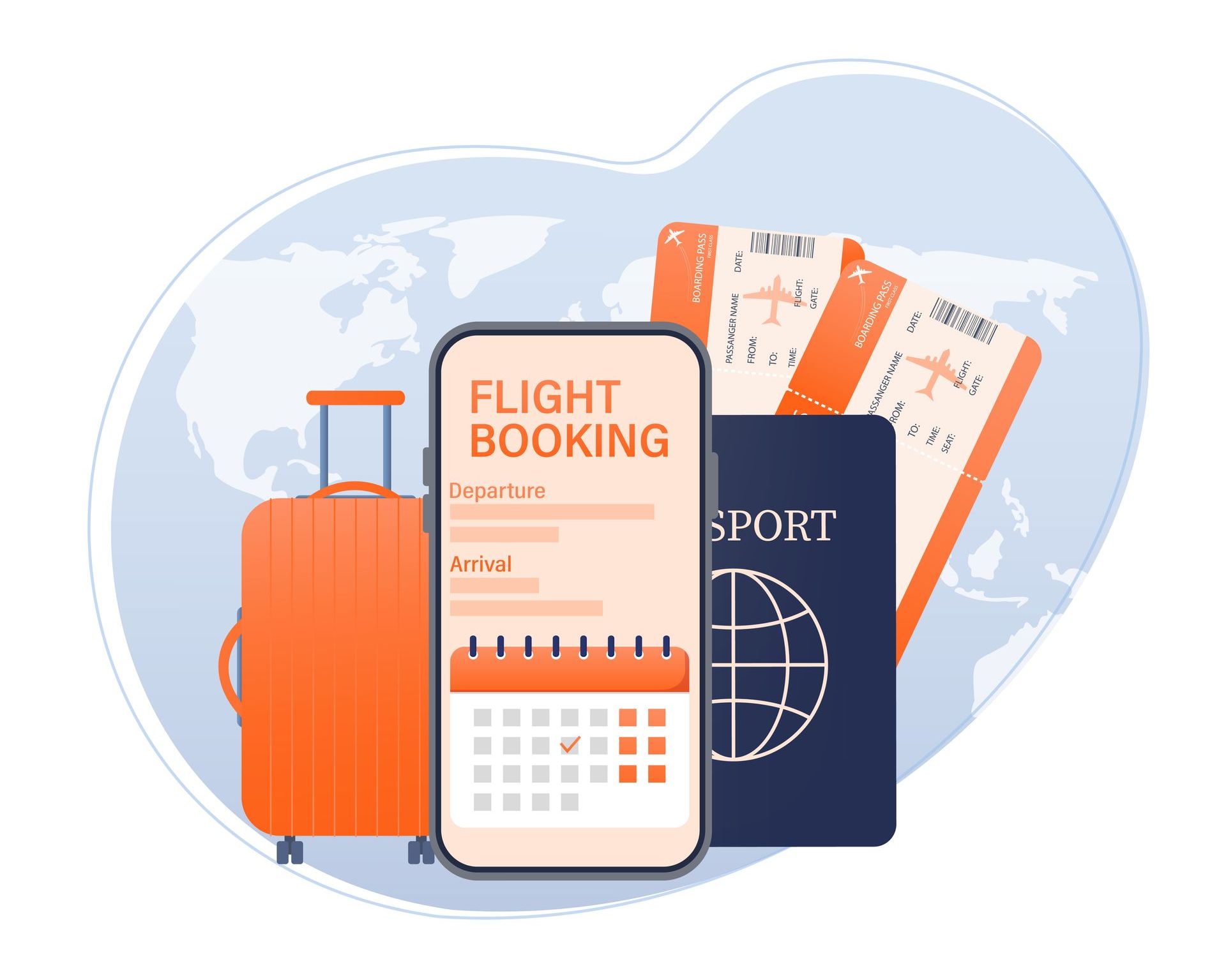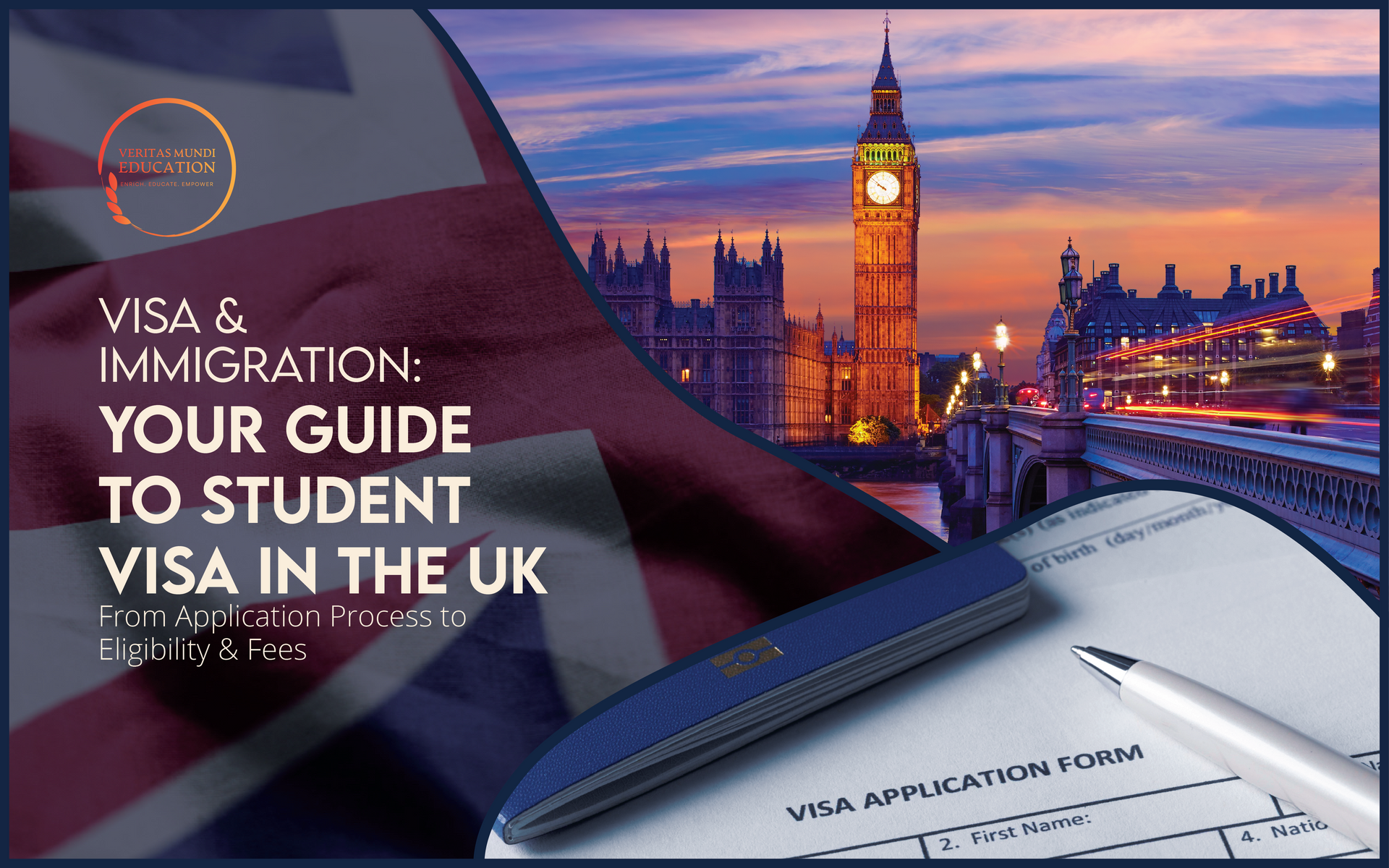Starting an educational journey abroad is both an exciting and transformative experience. For those planning to study in the UK, understanding the visa process is a crucial first step towards ensuring a smooth transition to your new academic life. The UK offers a range of visa options tailored to different needs, with the Student Route visa being particularly essential for those enrolled on longer academic programmes. This guide will help you learn more about the UK student visa requirements, eligibility criteria, fees, and required documents.
Understanding the Basics

As you plan your academic future in the UK, ensuring you have the correct visa is crucial. The type of visa you need depends on your course, its duration, and several other factors. Here, we'll help you navigate the various options so you can find the perfect fit for your educational goals.
Types of UK Student Visas:
Student Route Visa: Designed for international students aiming to pursue full-time undergraduate, postgraduate, or PhD programmes. Previously known as the Tier 4 (General) Student Visa, this is the primary visa for those planning to study in the UK for more than 6 months.
Child Route Student Visa: Targeted at children aged 4 to 17 who will attend an independent school in the UK. This visa supports younger learners, allowing them to stay for up to 6 years, provided they have secured a place at a registered school and have proper living arrangements.
Short-Term Study Visa: This visa suits students planning to take short courses or English language programmes lasting up to 11 months. It's intended for those seeking to enhance their education over a shorter period and does not permit work or extensions of the visa.
Standard Visitor Visa: While not a typical student visa, this option allows for participation in short-term educational activities like courses, seminars, or conferences that last no longer than 6 months. This visa does not allow for employment or an extended stay in the UK.
For EU/EEA nationals who do not have Pre-Settled or Settled Status under the EU Settlement Scheme, applying for a Student Visa might be required to begin your studies. It's essential to verify your visa needs on the GOV.UK website to ensure you meet all requirements for your study in the UK.
Student Route Visa – Overview and Key Requirements

If you are an international student aged 16 or over and aim to engage in higher education in the UK for more than 6 months, the Student Route visa is likely the one you will need to take. This visa category, which evolved from the Tier 4 (General) Visa, is designed to accommodate international students, including those from the EU, EEA, and Switzerland, seeking to study in the UK.
To apply for the Student Route visa, several criteria must be met:
- Age and Course Eligibility: You must be 16 years or older and planning to enrol in an eligible course at a recognised UK educational institution.
- Confirmation of Acceptance for Studies (CAS): Before applying, you must be accepted onto your course of choice at a licensed UK educational provider. Upon acceptance, you will receive a CAS, an electronic document that links you to your specific course and institution. This document is crucial for the visa application process.
- Financial Stability: Applicants must demonstrate that they have sufficient funds to support themselves during their stay and to cover their course fees. The exact amount required can vary depending on your situation and the location of your studies within the UK.
- English Language Proficiency: You need to prove your ability to read, write, speak, and understand English at a level appropriate for your intended course of study. This is typically verified through specific English language tests.
- Parental Consent: If you are aged 16 or 17, you must provide evidence of parental consent for your planned study and stay in the UK.
Documents Required for Student Route Visa

Applying for a Student Visa requires careful preparation of several key documents. Here’s a comprehensive list of everything you’ll need to successfully submit your visa application:
Essential Documents:
Current Passport - This is a fundamental requirement for all applicants. However, if you are an EU, EEA, or Swiss national, or if you are applying from within the UK, you may be eligible to use the 'ID Check' app. This app allows you to verify your identity electronically, replacing the need for an in-person biometric appointment and the submission of your passport at a visa application centre.
Online Student Visa Application Form - It’s crucial to fill out the correct version of the online application form depending on whether you are applying from overseas or within the UK. Make sure the form matches your specific circumstances.
Confirmation of Acceptance for Studies (CAS) - Issued by your course provider, the CAS is valid for six months from the date of issuance. It’s a fundamental document that includes details about your course and your qualifications if you are studying at degree level (RQF level 6) or above.
Financial Evidence and Requirements:
Proof of Financial Stability - You must demonstrate that you have sufficient funds to support yourself and cover your course fees. The exact amount you need will be indicated in your CAS. The Home Office has specific requirements for financial evidence, typically requiring that funds have been held in your account for 28 consecutive days, with the proof not being older than 31 days at the time of application.
In addition to course fees, you are required to show that you can support yourself during your studies. If you have been living in the UK with a valid visa for at least 12 months on the date of your application, you are exempt from this requirement. Otherwise, you must demonstrate you have the following amounts, depending on your location of study:
- £1,334 per month if studying in London (covering up to 9 months).
- £1,023 per month if studying outside London (covering up to 9 months).
Official Financial Sponsorship Letter - If you are sponsored by a government or an international scholarship agency, or have been in the last 12 months, a letter of consent from your sponsor is necessary. This letter should confirm their consent to your Student Visa application.
Additional Documents:
ATAS Certificate - Required for certain science and technology courses, especially those at PhD or Master’s level. This certificate, issued by the UK Foreign and Commonwealth Office, is necessary if your course and nationality demand it.
Parental Consent - For applicants under 18, proof of parental or legal guardian consent is required.
Tuberculosis (TB) Test Results - If you are coming to the UK for more than six months and have been residing in a country listed by the Home Office, a TB test from an approved clinic is mandatory. This must reflect your residency rather than your nationality.
When to Apply and What are the Fees?

The timing of your application largely depends on where you are applying from. If you are applying from outside the UK, the earliest you can submit your visa application is six months before the start of your course. Typically, you can expect a decision on your visa application within three weeks.
For those applying from within the UK, applications can be made as early as three months prior to the start of your course. It's critical to ensure that you apply before your current visa expires, and your new course must commence within 28 days after your current visa's expiry date. The decision process for applications made within the UK usually takes about eight weeks.
The cost of applying for a Student Route visa is uniform whether you are applying from outside the UK or looking to extend or switch to a Student visa from within the UK, with each application costing £490. However, some Visa Application Centres (VACs) may include additional charges that can affect the overall cost of your application. If you prefer to avoid this extra cost, you have the option to apply at another VAC that does not require this fee.
Furthermore, many VACs offer optional services for applicants who wish to expedite their application process or seek a more comfortable application experience. These services include:
- Priority Service: For an additional £500, this service speeds up the processing time of your visa application.
- Super Priority Service: For those needing even quicker processing, this service costs £1,000 and significantly reduces the waiting period for your application decision.
You can check the list of visa application centres to find out if your local VAC centre requires an additional user payment and whether additional services are available.
In addition to the visa fee, applicants must also pay the healthcare surcharge as part of their application, which grants them access to the UK’s National Health Service (NHS) on generally the same basis as a UK resident. The amount you need to pay for the immigration healthcare surcharge (IHS) is determined by the length of your visa, not just the duration of your studies.
For a visa valid for up to one year, you will need to pay £776, which is the standard annual rate for students, their dependants, and Youth Mobility Scheme visa applicants. This rate also applies to those under 18 at the time of application. For other types of visas and immigration applications, the annual surcharge is £1,035. If your visa lasts for more than a year but less than two years, the total cost becomes a combination of full years and any additional months.
Biometrics and Credibility Interviews

As part of the application process for the Student Route visa, most applicants are required to provide biometrics, which include a facial photograph and fingerprints. After completing the visa application form, it will prompt you to schedule an appointment at a Visa Application Centre to submit your biometrics.
However, there is an exception for EEA nationals whose passports are equipped with a biometric chip. These individuals do not need to schedule a biometrics appointment. Instead, they can use the UK Immigration: ID Check app to scan their passport and upload a photograph directly, facilitating a smoother and quicker application process. Details on how to use this app and what specific steps need to be taken are provided within the Student Route visa application form.
In addition to biometric data, the Home Office often conducts credibility interviews as part of their assessment process. These interviews are intended to confirm that applicants are genuine students and to verify their English language proficiency and intentions in studying in the UK. If you are selected for an interview, you will receive an email notification. It is crucial to check your email regularly, including your junk folder, as failing to respond to an interview invitation can lead to the refusal of your application without a reasonable explanation.
During the interview, a Home Office staff member will ask questions about the course you intend to study, your chosen educational institution, and your motivations for studying in the UK. The responses given during the interview are compiled into a report and sent to the caseworker responsible for making the final decision on your visa application. The caseworker must be convinced of your genuine student status and that your English language skills are sufficient for your intended studies. If there are doubts regarding any of your responses or your language skills, you may be called for a further interview, or your application may be at risk of refusal.
After Your Student Route Visa Application

Once you submit your application for a Student Route visa, the waiting begins. The Home Office provides up-to-date processing times on its visa processing times: applications outside the UK page. Keep in mind that these are average times, and the duration to process individual applications can vary.
When you receive a decision on your Student visa application, several important steps follow. First, you’ll need to understand when and how you can travel to the UK. Most Student route applicants will receive a 90-day vignette, which is a sticker placed in your passport. This vignette allows you to enter the UK, but you must plan your travel carefully:
- If your course lasts 6 months or less, you can arrive in the UK up to one week before your course starts.
- If your course lasts more than 6 months, you may arrive up to one month before your course begins.
It's crucial that you do not travel to the UK before the start date given on your visa, regardless of when your course starts. Upon arrival in the UK, you will need to collect your Biometric Residence Permit (BRP) which details the full length of your permission to stay.
For those staying six months or less, the vignette will cover the entire duration of your stay. However, it's important to keep the letter that comes with your vignette, as it contains essential information and should be brought with you to the UK. EEA nationals who have utilised the UK Immigration: ID Check app will receive a digital status instead of a vignette, and this digital status can be shared as needed to demonstrate your permission to stay.
Familiarising yourself with the conditions of your visa is crucial. As a Student Visa holder, your ability to remain in the UK is dependent on your active participation in your studies. Universities are obligated to monitor and report on the attendance of their international students. Missing classes without prior approval could lead to being reported to the Home Office, potentially resulting in visa cancellation and removal from your course.
Additionally, the Student Visa comes with specific work restrictions. Normally, you are allowed to work up to 20 hours per week during term time, which includes paid and unpaid work. It's important to verify the specific conditions on your BRP and check the academic calendar to understand when these restrictions apply. During official university vacations, these work limits are typically lifted.
Finally, make sure to check all details on your visa and accompanying documents as soon as you receive them. If your visa is issued with a vignette, ensure that the information on the vignette matches what is in the letter and later on the BRP you collect in the UK. Any differences should be addressed immediately to avoid complications during your stay in the UK. This thorough check ensures that your transition into your new academic and living environment goes as smoothly as possible.

